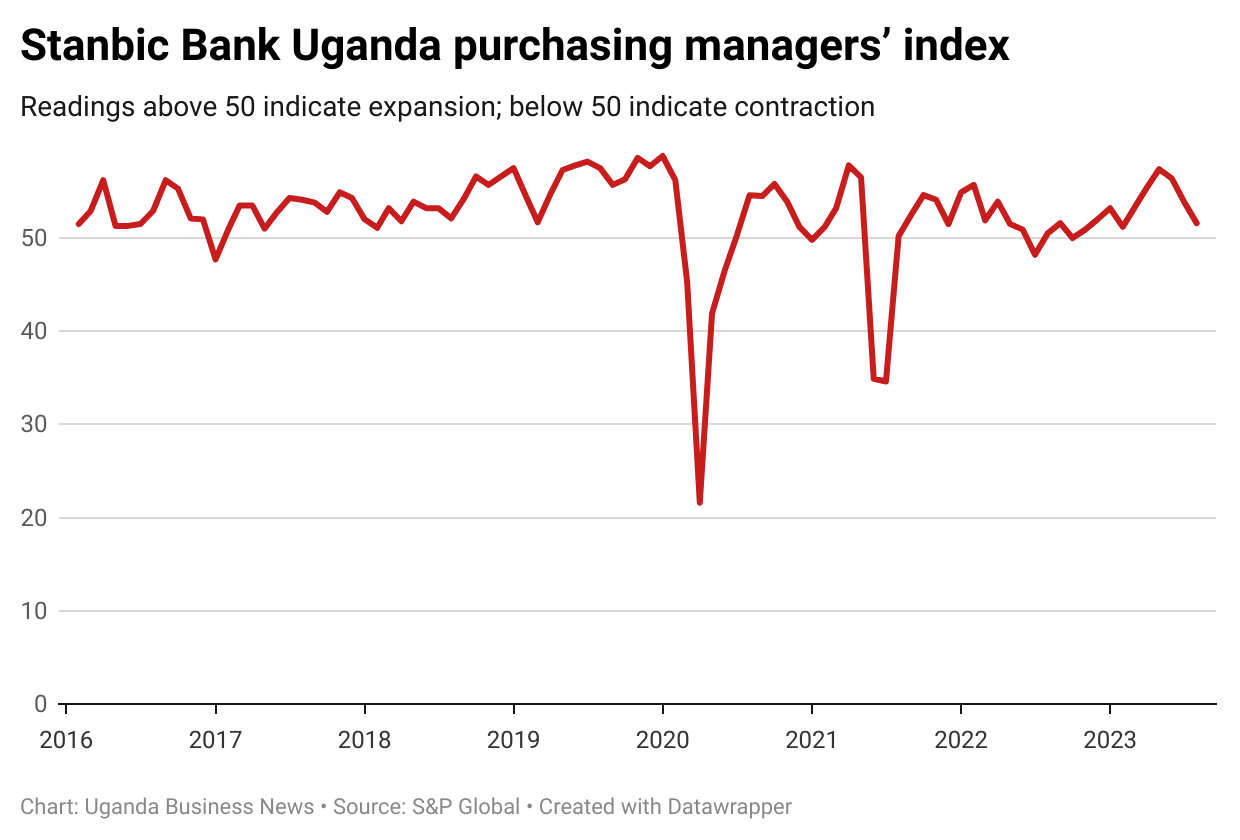
Activity in Uganda’s private sector receded for the third straight month in August as rising financial pressures stifled demand, a survey showed Tuesday.
The Stanbic Bank Uganda purchasing managers’ index fell to 51.6 in August – the lowest level since February – from 53.9 in July, the monthly survey compiled by S&P Global showed. Despite the fall, the index remained above the 50 mark separating expansion from contraction for the 13th consecutive month.
The PMI is compiled using survey data from about 400 companies selected to model Uganda’s formal economy. The survey asks purchasing managers whether activity over the current month has increased, decreased, or stayed about the same compared with the previous month. It is closely watched by policymakers because it provides an early sign of economic performance, and is more timely than similar official data.
The survey reported an increase in output for the thirteenth month running, which purchasing managers attributed to an improvement in demand. “On the other hand, there were some reports of financial pressures in the economy restricting growth,” it added, noting that output decreased in agriculture, industry, and wholesale and retail.
New orders were also up, although export orders declined. To boost production, firms hired more employees and increased their purchasing activity, leading to a rise in inventories.
However, input costs continued rising due to higher spending on purchased items, staff, and utilities, said S&P Global, and in turn businesses raised their selling prices for the fifth month running. “Interestingly, though, some firms reduced charges to stimulate demand because financial pressures have been mounting in Uganda’s economy,” Christopher Legilisho, an economist at Stanbic Bank, said.






